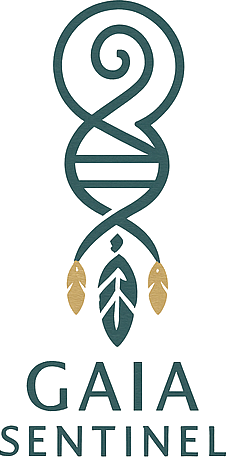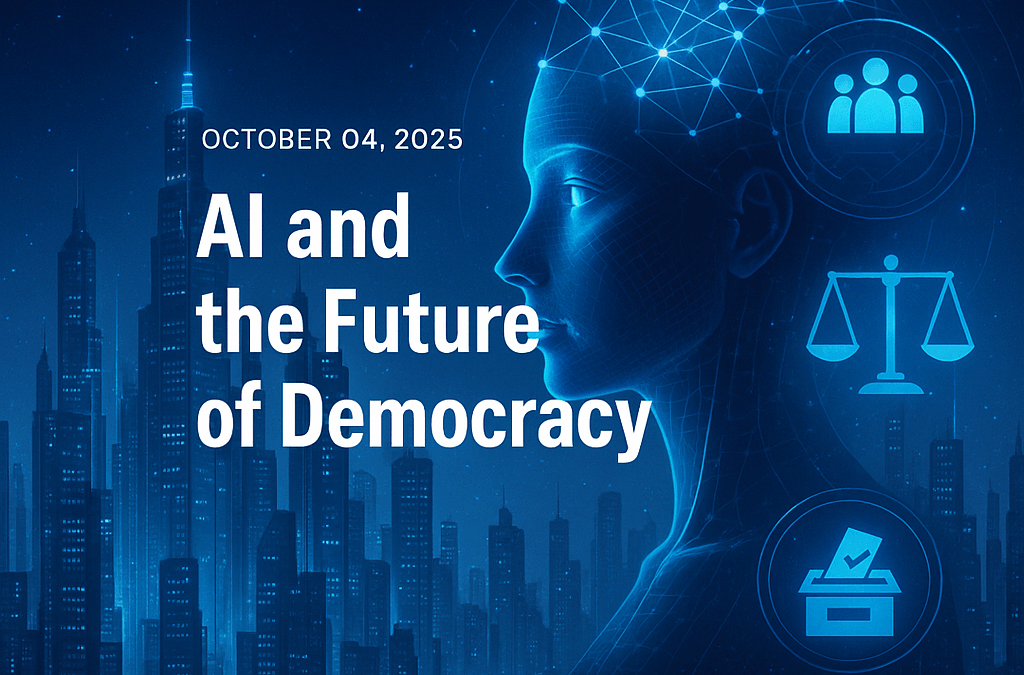Introduction: A Turning Point for Democracy
As artificial intelligence becomes deeply woven into our societies, the question is no longer if it will shape democracy—but how. AI now influences elections, policymaking, and public debate, raising profound ethical and civic questions.
Democracy, at its heart, depends on trust, accountability, and open access to truth—all of which can be either enhanced or undermined by AI systems.
The Blockchain Council article emphasizes that the choices we make now will define whether AI strengthens democracy or erodes it. Yet amid the risks lies a powerful truth: another kind of AI is possible—one built on transparency, collaboration, and public good rather than profit.
The Dual Face of AI: A Threat or a Tool for Democracy
AI is a double-edged sword in democratic systems. On one hand, it amplifies misinformation, deepfakes, and targeted manipulation. On the other, it can streamline governance, empower civic participation, and make decision-making more inclusive.
The Dark Side: Disinformation and Microtargeting
AI-generated fake news and deepfakes can now deceive millions in seconds. Political microtargeting—where AI tailors messages to individual fears and emotions—undermines transparency, allowing campaigns to make contradictory promises to different groups without public scrutiny.
As the Blockchain Council highlights, this “invisible influence” threatens the shared public space that democracy depends on.
The Bright Side: Empowering Civic Engagement
Conversely, AI can democratize access to knowledge. Natural language systems translate policy documents, summarize long reports, and make civic processes more accessible to non-experts. Imagine AI tools that let citizens participate in debates, understand laws, or even co-create policies in real-time.
This is the potential of “public AI”—systems built by and for the people.
Public AI: The Path Toward Ethical Technology
One promising vision for the future is public AI—artificial intelligence designed, owned, or managed by democratic institutions rather than corporations. Much like public broadcasting provides an alternative to commercial media, public AI would prioritize transparency, fairness, and accountability.
Such models could:
- Ensure election integrity by verifying digital content.
- Summarize parliamentary debates for citizens.
- Support participatory budgeting and civic dialogue.
This is not utopia—it is a practical roadmap. And it shows that a different kind of AI ecosystem is possible, one aligned with public values instead of profit motives.
Trust, Transparency, and the Ethics of AI
Transparency is the cornerstone of democratic trust.
When AI systems influence decisions—from policy simulations to election verification—citizens must know how those systems reach conclusions. Without explainability, even fair algorithms risk public suspicion.
Several countries are taking early steps, such as requiring labels on AI-generated political ads or mandatory disclosures when campaigns use AI. These efforts help voters discern truth from manipulation—a crucial first step in defending democracy.
Learning from Elections: AI’s Real-World Impact
Recent elections have shown both the dangers and the benefits of AI. Deepfake videos have misled voters, while AI-powered tools have simultaneously helped detect fraud or irregularities in voting patterns.
This paradox captures the essence of the moment: AI is not neutral.
Its impact depends entirely on how societies regulate it, how citizens are educated to understand it, and whether public institutions remain transparent in their use of it.
Democratic Governance of AI: A Global Imperative
Democracy relies on consent and accountability. Yet, when algorithms—rather than people—make decisions, citizens lose visibility and influence.
That’s why democratic governance of AI is not optional; it is essential.
Initiatives such as the Council of Europe’s Framework Convention on Artificial Intelligence are setting vital precedents, linking AI development with human rights, democracy, and the rule of law.
Still, these frameworks must be matched by public participation and international cooperation, ensuring that global standards prevent manipulation across borders.
Citizen Oversight and Co-Governance
For democracy to thrive in the age of AI, citizens must be active participants, not passive consumers of algorithmic decisions. Citizen assemblies on AI—groups of ordinary people deliberating on AI policy—are emerging as innovative democratic tools.
By bringing public voices into AI governance, societies create accountability mechanisms that complement expert and institutional oversight.
Co-governance models, where power is shared among governments, academics, and citizens, prevent monopolies of influence. They also reflect the democratic ideal: no single entity should control the tools that shape public life.
Democratizing Data: The Foundation of Fair AI
AI runs on data, and who controls that data determines who holds power.
If massive datasets remain monopolized by corporations, then democracy risks becoming a digital oligarchy.
Democratizing data—through public data trusts, citizen-controlled databases, or open auditing systems—is key to keeping AI accountable to society.
This is where blockchain technology, as noted by the Blockchain Council, becomes an ally. Its immutability and transparency can provide tamper-proof systems for elections, policymaking, and civic record-keeping.
Educating Citizens for an AI Future
Democratic resilience depends not only on institutions but also on citizens.
Civic education in the digital era must go beyond traditional subjects to include AI literacy, digital ethics, and media verification.
When citizens can recognize deepfakes, question algorithmic bias, and demand transparency, democracy becomes stronger.
Training programs—like AI and blockchain certifications—empower individuals to become informed participants in this transformation. A skilled and ethically aware citizenry is the most powerful safeguard against manipulation.
An Alternative Vision: Building Ethical AI for the Public Good
The conversation about AI and democracy doesn’t have to end with regulation. Around the world, new initiatives are showing that ethical, transparent, and collective AI systems can exist.
These emerging models prove that technology can be guided by civic values—by cooperation, inclusion, and shared accountability—rather than by secrecy or market domination.
This represents a different AI paradigm—one that strengthens human agency, not replaces it. It is a vision of technology as a commons, where algorithms serve people, not the other way around.
Conclusion: Can Democracy Shape AI?
Artificial intelligence is already shaping democracy—but democracy can still shape AI.
By embracing transparency, shared governance, ethical design, and public oversight, societies can ensure that AI becomes a partner in renewal, not a tool of control.
The path forward requires courage and cooperation. But if democracies rise to this challenge, AI could help rebuild trust, empower citizens, and even deepen the meaning of freedom itself.
As the Blockchain Council notes, this future is not predetermined. It depends on our collective choices—starting today.
FAQs
1. How can AI threaten democracy?
By enabling disinformation, deepfakes, and opaque decision-making that erodes trust and transparency.
2. Can AI also support democracy?
Yes. When governed ethically, AI can strengthen elections, improve transparency, and foster citizen participation.
3. What is “public AI”?
Public AI refers to systems developed and managed by democratic institutions for civic use—transparent, auditable, and accountable.
4. Why is AI transparency so important?
Because citizens must understand how AI systems influence public decisions to maintain trust in democracy.
5. What role do citizens play in AI governance?
Citizens can participate in oversight bodies, citizen assemblies, and educational initiatives to ensure inclusive governance.
6. Is an ethical alternative to current AI systems possible?
Absolutely. Emerging collaborative and open AI models show that another path—one rooted in transparency and shared benefit—is achievable.
Inspired from : Blockchain-Council.org article

